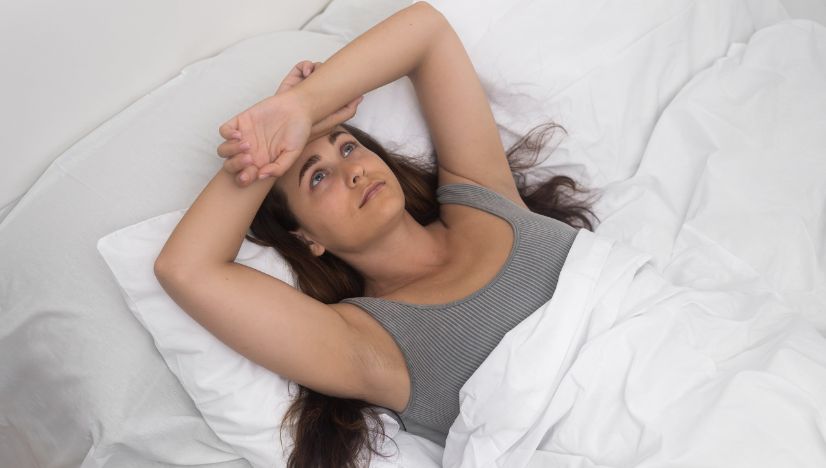
May 30, 2024, By Virginia TMJ Facial Pain and Sleep Center
Living with sleep apnea can be challenging. It’s a condition that affects millions of people worldwide, causing disrupted sleep and leading to various health issues. Many factors can influence the severity of sleep apnea symptoms, and one of them is temperature. As summer approaches, you might wonder if the warmer weather can exacerbate your sleep apnea symptoms. In this blog, we’ll delve into how warm temperatures can impact sleep apnea and what you can do to manage it better. If you are in Glen Allen and seeking help, this guide is for you.
What is Sleep Apnea?
Sleep apnea is a disorder characterized by repeated interruptions in breathing during sleep. These interruptions, known as apneas, can last for a few seconds to minutes and may occur multiple times per hour. The most common type is obstructive sleep apnea (OSA), where the muscles in the throat relax excessively, causing a blockage of the airway.
Symptoms of sleep apnea include:
- Loud snoring
- Gasping for air during sleep
- Frequent waking during the night
- Daytime fatigue
- Difficulty concentrating
If left untreated, sleep apnea can lead to more serious health problems such as hypertension, heart disease, and diabetes. It’s crucial to address this condition promptly.
The Impact of Warm Temperatures on Sleep Apnea
Warm temperatures can indeed have a significant effect on sleep apnea symptoms. Here’s how:
1. Decreased Sleep Quality
Warmer temperatures can make it difficult to fall and stay asleep. The ideal room temperature for sleep is around 60-67°F (15-19°C). When the temperature rises above this range, it can disrupt the body’s natural cooling process, making it harder to achieve restful sleep. For those with sleep apnea, this can mean more frequent awakenings and a decrease in overall sleep quality.
2. Increased Airway Resistance
Heat and humidity can cause the tissues in the airway to swell, leading to increased airway resistance. This is particularly problematic for individuals with obstructive sleep apnea, as their airways are already prone to collapse. Swelling can make it even harder to breathe, exacerbating apnea episodes.
3. Dehydration and Mucus Production
Warm weather can lead to dehydration, which in turn can cause the production of thicker mucus. Thick mucus can obstruct the airway, making breathing more difficult. Staying hydrated is essential, especially in warmer months, to keep the airways clear and reduce the risk of worsened sleep apnea symptoms.
4. Environmental Allergies
Summer often brings an increase in pollen and other allergens. Allergies can cause inflammation and congestion in the nasal passages, further complicating breathing for those with sleep apnea. Managing allergies effectively during warmer months is crucial for maintaining clear airways.
Managing Sleep Apnea in Warm Temperatures
Now that we understand how warm temperatures can worsen sleep apnea symptoms, let’s explore some strategies to manage the condition effectively during these months.
1. Maintain a Cool Sleep Environment
Ensure your bedroom stays cool by using air conditioning or fans. Keeping the windows closed during the day can help prevent hot air from entering. Blackout curtains can also block out the sun’s heat. Investing in a cooling mattress pad or lightweight, breathable bedding can further enhance comfort.
2. Stay Hydrated
Drink plenty of water throughout the day to stay hydrated. Refrain from consuming caffeine and alcohol close to bedtime as they may lead to dehydration. Hydration helps thin mucus and keeps airways clear, making breathing easier during sleep.
3. Use a Humidifier
Using a humidifier can add moisture to the air, which can help reduce airway swelling and make breathing easier. This is especially helpful if you live in a dry climate. However, ensure the humidifier is cleaned regularly to prevent mold and bacteria buildup.
4. Manage Allergies
If you suffer from seasonal allergies, consider using an air purifier in your bedroom to remove pollen and other allergens from the air. Allergy medications, such as antihistamines or nasal sprays, can also help reduce inflammation and congestion.
5. Regular Check-ups with a Specialist
Regular visits to a Dentist can help manage sleep apnea effectively. They can provide personalized advice and treatment options, such as custom oral appliances, to keep your airway open during sleep. If you are in Glen Allen, finding a reliable Dentist Glen Allen who understands sleep apnea in Glen Allen, can make a significant difference in your treatment.
Seeking Professional Help
If you suspect that warm temperatures are worsening your sleep apnea symptoms, it’s important to seek professional help. A specialist can provide a comprehensive evaluation and suggest appropriate Sleep Apnea treatment options. Glen Allen residents have access to various healthcare providers who can offer expert advice and tailored treatment plans. Sleep Apnea Glen Allen services are available to ensure that individuals receive the care they need for better sleep and health.
A dentist who specializes in sleep apnea can fit you with a custom oral appliance designed to keep your airway open. This can be particularly effective for those with mild to moderate obstructive sleep apnea. If you’re in Glen Allen, consulting a Dentist can be a vital step towards improving your sleep and overall health.
Conclusion
Warm temperatures can indeed worsen sleep apnea symptoms by affecting sleep quality, increasing airway resistance, and causing dehydration. However, by taking steps to maintain a cool sleep environment, staying hydrated, using a humidifier, managing allergies, and seeking professional help, you can effectively manage your condition even during the warmer months.
Remember, if you are in Glen Allen and struggling with sleep apnea, don’t hesitate to reach out to a Dentist in Glen Allen. They can provide the support and treatment you need to sleep better and improve your quality of life. Sleep well and stay cool!
